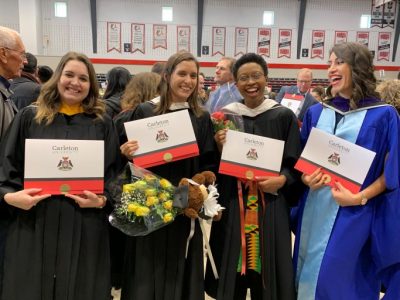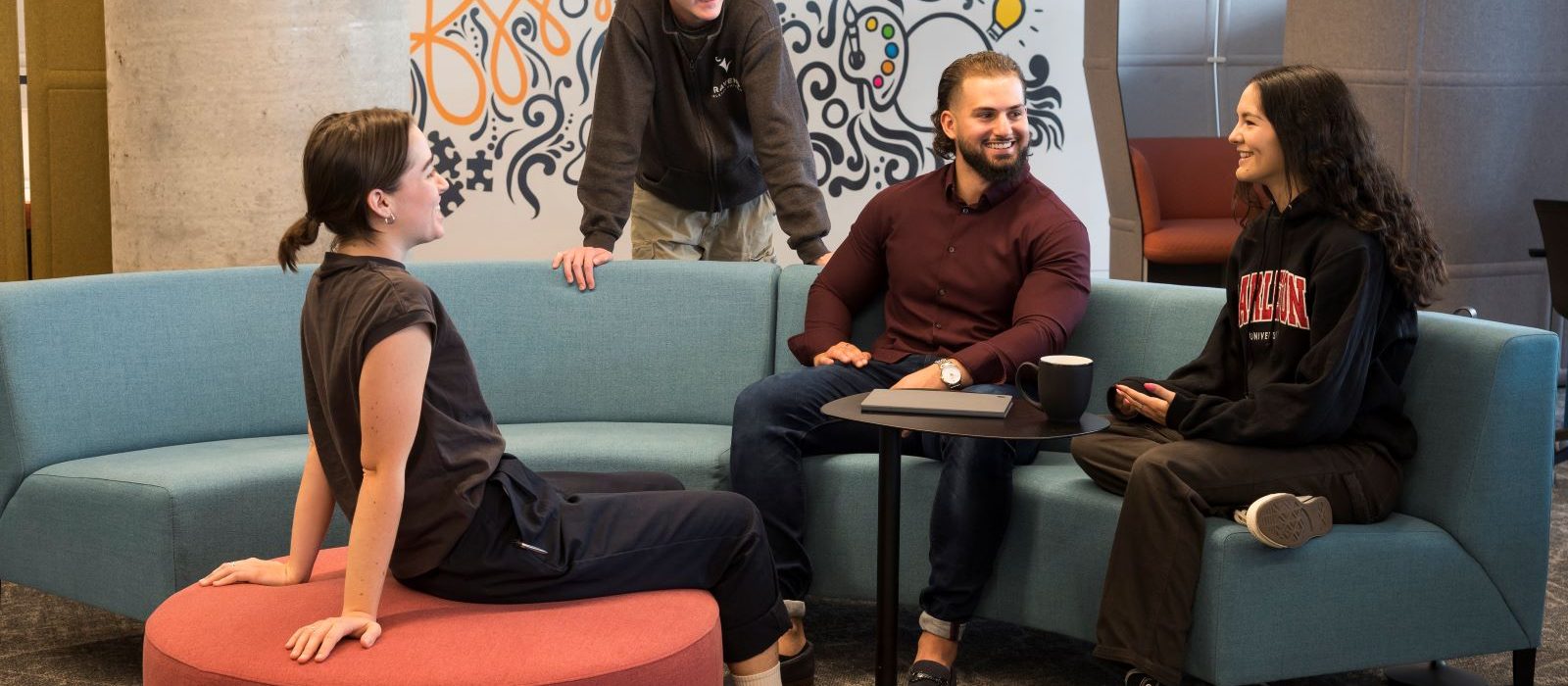- Engage with Indigenous communities through sustained relationships founded in mutual responsibility and accountability
- Grow partnerships and associations with alumni, community and not-for-profit organizations, industry, and governments
- Expand service-learning opportunities for students, faculty, staff, and community partners to work together
- Strengthen our physical and reputational presence within Ottawa
Engage with Indigenous communities through sustained relationships founded in mutual responsibility and accountability
- Develop an Indigenous Community Engagement strategy
- Support the Ānako Indigenous Research Institute
- Establish an Indigenous Research Ethics Board to facilitate understanding and improve research with Indigenous Peoples
- Indigenous pedagogies and land-based learning (within communities, drawing on local expertise of Indigenous community), to allow to connect students with communities and bring them to Carleton
Additional information about Carleton’s activities in this area is available in the Kinàmàgawin report; and the Strategic Plan for Community Engagement (SP4CE)
Grow partnerships and associations with alumni, community and not-for-profit organizations, industry, and governments

- Expand the successful Holistic Integrated Partnership collaboration between the Office of the Vice-President (Research and International) and Department of University Advancement
- Expand resources and capacity for research project funding from community, national, and international foundations
- Establish the Global Talent Initiative to find ways to foster a sense of welcoming amongst new migrant communities
- Establish the Ottawa-Carleton City Observatory to promote evidence-based decision-making within the municipality
- Expand and formalize our partnerships with local health-care providers
- Solidify and optimize opportunities with industry through CU@Kanata
- Build on our unique location and strengths to formalize partnerships with federal government departments
- Capitalize on relevant programs, such as the Master of Public Policy and Administration, to increase our presence with federal policy-makers
- Invest in ARISE (including build out) to ensure it is successful in supporting innovative partnerships with all external organizations
Expand service-learning opportunities for students, faculty, staff, and community partners to work together
- Implement the Strategic Plan for Community Engagement, which outlines the following five priorities:
- Foster and maintain existing relationships, while building new ones for positive impact;
- Develop systems and services to support our relationships;
- Focus on creative and innovative community engagement that is sustainable;
- Improve communications across communities to support connection; and
- Provide greater recognition of collective efforts that exemplify community
- Continue to support the Centre for Community Engagement, which serves as a focal point for strategically aligning community engagement across the university and with partners
Additional information about Carleton’s activities in this area is available in the Strategic Plan for Community Engagement (SP4CE)
Strengthen our physical and reputational presence within Ottawa
- Support programming in CU@Kanata and at the Carleton Dominion-Chalmers Centre
- Support research collaborations with local health-care organizations, including social service providers and hospitals
- Expand relationships with the City of Ottawa
- Engage fully in the local innovation ecosystem, including research incubators and accelerators, commercialization support systems, and local Business Improvement Areas
- Expand research engagement and opportunities with local public institutions, such as museums and the National Library and Archives
- Expand lifelong learning programs
Additional information about Carleton’s activities in this area is available in the Strategic Plan for Community Engagement (SP4CE)
